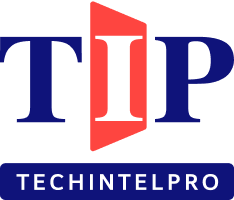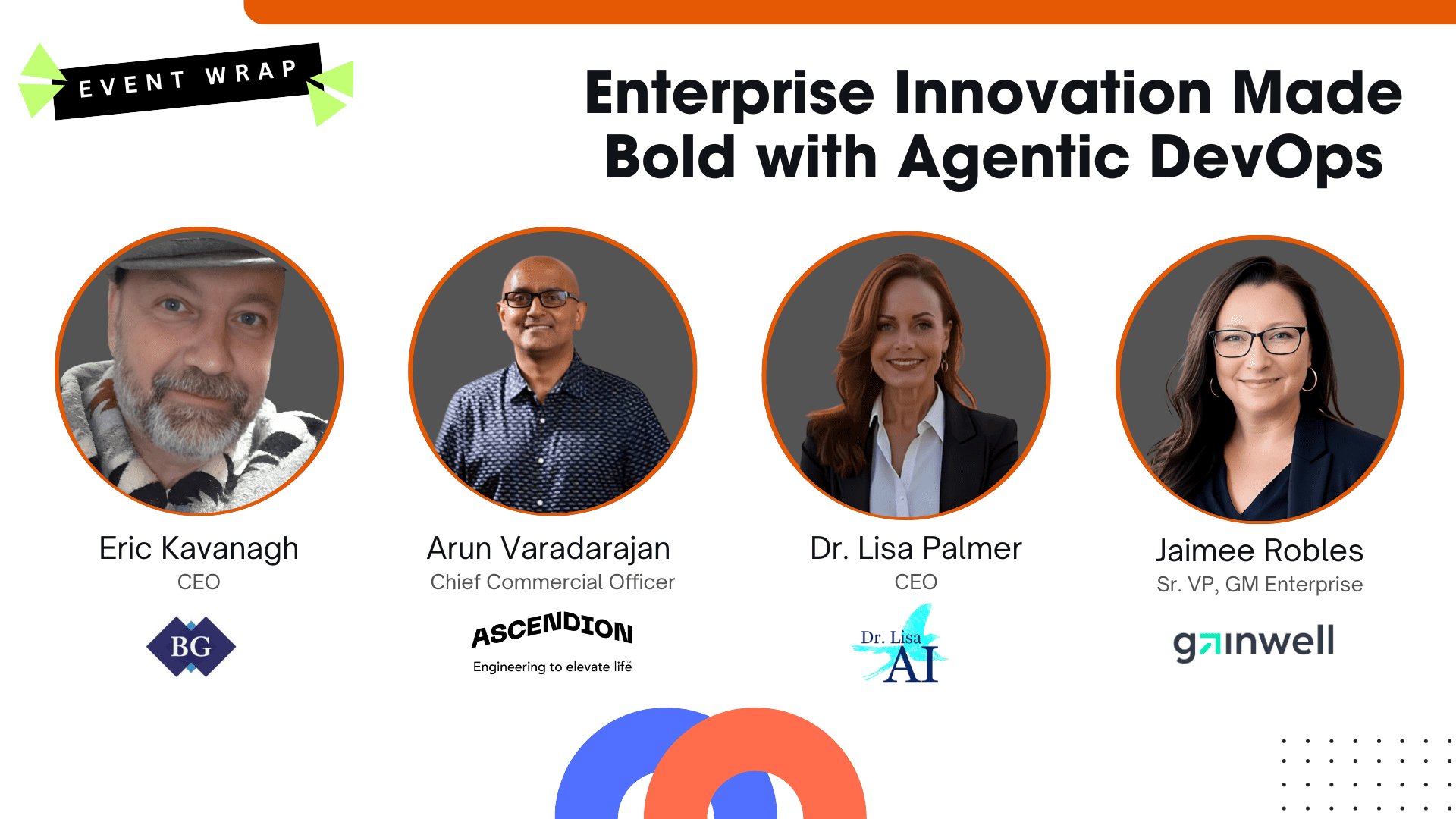

In a recent webinar hosted by Eric Kavanagh, leading voices in the AI & tech space, Arun Varadarajan (Chief Commercial Officer, Ascendion), Dr. Lisa Palmer (CEO, Dr. Lisa AI), and Jaimee Robles (Sr. VP, GM Enterprise, Gainwell Technologies) came together to explore to explore one of the burning topics in modern enterprise technology: Agentic DevOps.
At a time when enterprises are racing to adopt AI while balancing security, governance, and productivity, the panel unpacked how agentic AI systems are reshaping the way DevOps teams build, deploy, and manage applications. Highlighting both opportunities and challenges, the discussion gave a comprehensive view of what lies ahead.
Traditional DevOps has always been about faster release cycles, streamlined workflows, and collaboration between development and operations. With agentic AI stepping in, this mandate goes deeper. Instead of simply automating repetitive tasks, agentic DevOps enables AI agents to act with context, autonomy, and responsibility.
This shift could dramatically reduce the friction between developers and IT teams. By contextualizing data and processes, agentic systems can identify bottlenecks, flag risks, and even recommend fixes, accelerating cycles while keeping guardrails intact.
A recurring theme in the conversation was shadow AI. The growing trend of employees using unapproved AI tools. This creates significant risks around data security and compliance. In the context of DevOps, shadow AI can also fragment workflows and expose organizations to vulnerabilities.
Agentic DevOps, the panel argued, offers a structured solution. By providing developers with trusted, enterprise-ready AI tools, companies can reduce the reliance on shadow systems. Governance and transparency become built-in, rather than afterthoughts.
One powerful promise of agentic DevOps is contextualization. Unlike generic AI models, agentic systems are embedded within the enterprise ecosystem, pulling knowledge from organizational data and workflows.
This context empowers AI agents to make decisions that are aligned with company standards, whether it’s managing code quality, monitoring system performance, or ensuring compliance during deployments. For DevOps teams, this means less firefighting and more focus on strategic innovation.
The panel also touched on a human dimension often overlooked in AI discussions. Developer morale. DevOps can be a high-pressure environment, with long hours spent troubleshooting and maintaining pipelines. By offloading tedious tasks to agentic AI, organizations can create more rewarding roles for developers.
As Dr. Palmer emphasized, happier and more engaged developers are also more innovative. Agentic DevOps, therefore, exceeds being about efficiency to building a sustainable culture of growth and creativity within tech teams.
The panel consensus was clear: agentic DevOps is not a distant vision but an emerging reality. Enterprises that embrace this approach stand to benefit from faster delivery cycles, stronger governance, and a more motivated workforce. However, adoption requires thoughtful strategy, from ensuring transparency and security to aligning tools with enterprise needs.
As Eric Kavanagh concluded, the future of DevOps will be defined by the degree to which organizations can harness the power of agentic AI responsibly. By doing so, businesses can move beyond mere automation and unlock a new era of agility, trust, and innovation.